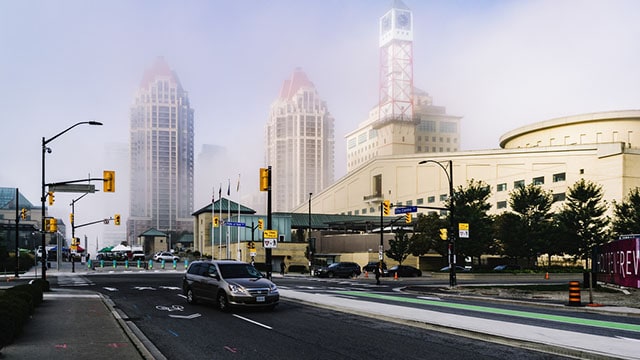Rules Regarding How Mississauga Fights Some Developments Set to Change
Published December 4, 2018 at 5:54 am

While Mississauga is no stranger (and that’s a good thing) to new developments, not everyone approves of every new building that’s been proposed for the city.
For that reason, the city and developers can approach the province for help when residents and council members are concerned that a new build doesn’t quite fit the character of the neighbourhood.
But now, that mediation process is changing.
While the city certainly has its say in its own development destiny, land use planning in Ontario is set out by the ground rules laid out in the Planning Act, and some of those rules are set to change.
Earlier in the year, the Ontario government implemented a significant change to the way municipal planning approval and appeals process are governed. The change required an amendment to the Planning Act and the introduction of Bill 139, the Building Better Community Watershed Act, 2017.
The new planning legislation was implemented by the previous government and the legislation came into effect April 3, 2018.
A meeting was held this fall at City Hall in Mississauga in regards to the local planning tribunal and Bill 139. The primary purpose of the meeting was to provide stakeholders with information on the new processes regarding how decisions are made at Council when it comes to planning–and how the new appeals process would work should council’s decisions be appealed.
Residents, ratepayer groups and homeowner associations were some of the few groups that were invited to attend the session for more information.
One of the most significant changes is that the Local Planning Appeal Tribunal (LPAT) replaced the Ontario Municipal Board (OMB). LPAT will hear cases in regards to official plans, zoning by-laws, subdivision plans, development charges and minor variances. LPAT is part of a group of tribunals that adjudicate matters related to planning, property assessment, land evaluations and other.
LPAT will also have a support centre that will assist with information on land use planning, guidance on processes and procedures as well as advice and assistance for representation. The goal of the LPAT is provide individuals with the right tools and resources to navigate the planning and appeal process in Ontario.
Some examples were provided during the meeting on some of the changes and similarities to processes. Just some examples of new and similar processes in regards to committee of adjustment appeals and zoning by-law appeals.
Appeals that come through the LPAT with go through new procedures, new timelines, and more written and fewer oral hearings for certain types of appeals.
Although some general information on the changes is provided in regards to similarities and differences, various unknowns were brought forward at the meeting in September.
One question from a local resident in regards to what criteria will be used to decide when an oral or written hearing is provided.
“The short answer is we don’t know. It’s such early days I can tell you. As I said, this all came in April and the furthest anybody has gotten in this process so far is the very first case management conference which was held in Toronto last week. I can tell you that they were given an oral hearing scheduled in 2019, but there’s no sort of set criteria that the Tribunal has identified for when it’s going to be written or oral,” says Lia Magi of Legal Services at the City of Mississauga.
More updates as information is provided.
Cover photo by @idris.yyz
insauga's Editorial Standards and Policies advertising





